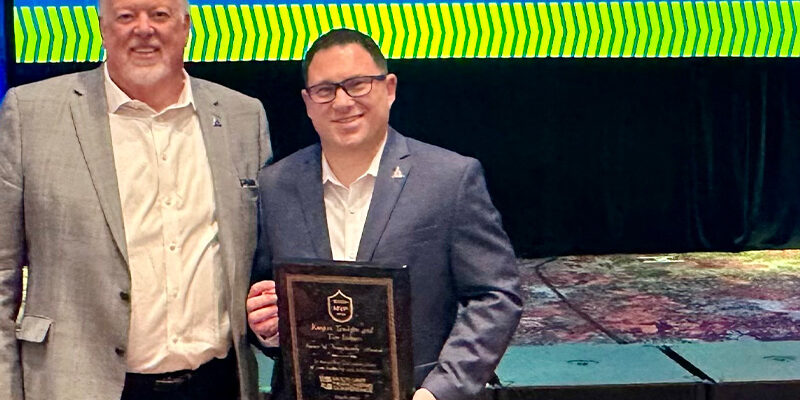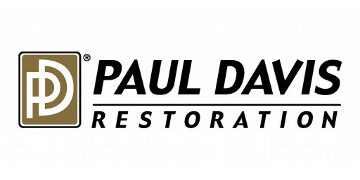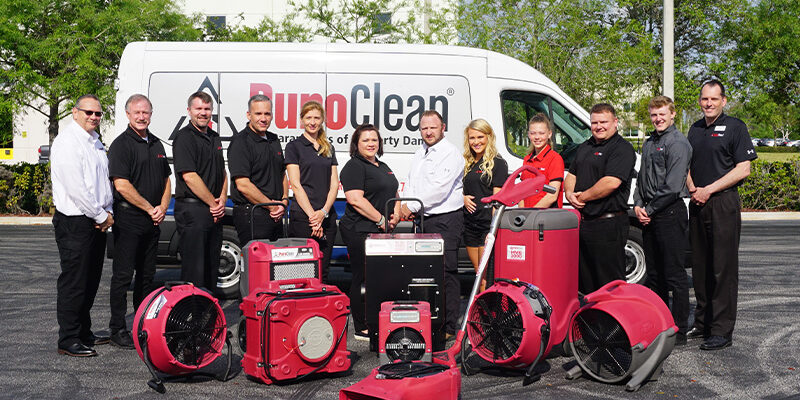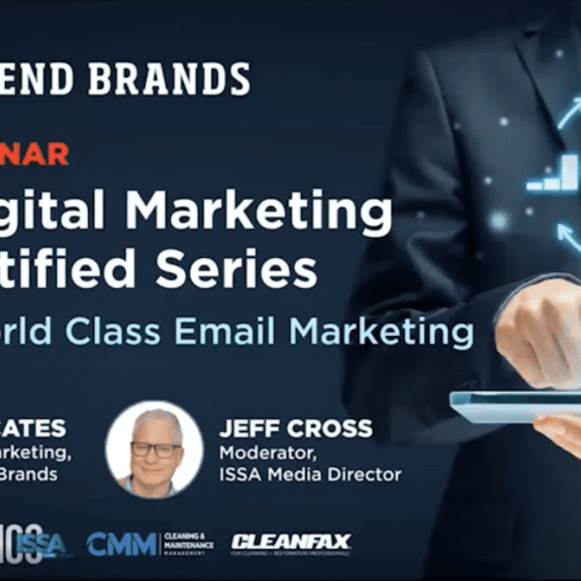A Dangerous World: Avoiding Coronavirus Cleaning Liabilities
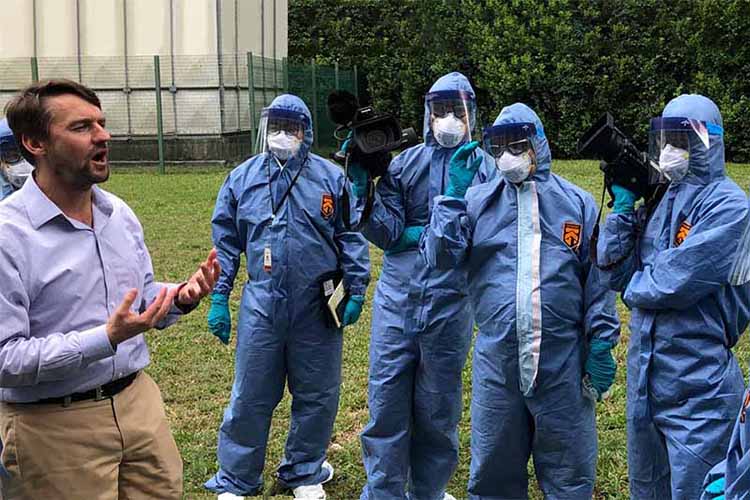
by Jeff Cross, editorial director
Cleaners and restorers worldwide are at battle against the coronavirus and doing all they can to stop the virus from spreading. But some, without proper training, equipment, and chemistry, might be causing more harm than good, making coronavirus cleaning a liability.
What happens when a front-line cleaning or restoration professional doesn’t follow industry standards and instructions? It can lead to disaster.
Here’s an example.
Jim Pemberton, president of Pembertons in McKeesport, PA, is an industry supplier, trainer, and consultant. He is inundated with questions from not only his direct customers but others across the country, looking for advice on what to do to battle the coronavirus and help customers. He related one experience of a cleaner who thought he could simply add disinfectant to his cleaning solution, which isn’t what the directions indicated.
Pemberton has had other conversations with cleaners who ask about misting, fogging, and using other forms of applying products to the surfaces. The challenge is they are thinking of routine cleaning procedures, not something as serious as fighting the coronavirus.
“So many of these guys just want someone to tell them, ‘It’s OK,’ and they don’t think about the consequences.” As Pemberton noted, dangerous repercussions may result from these types of situations.
Targeted training
Patricia Olinger, the executive director of the Global Biorisk Advisory Council (GBAC), a division of ISSA, sees the same issue.
“We are getting questions about how people can start a business right now in professional disinfection,” she said. “We are seeing people in many different industries thinking they can just pick up a piece of equipment, put disinfectant in it, and go! Someone is going to get hurt. The need for training, individual certifications, and company accreditation programs is evident.”
One solution offered by GBAC is the GBAC Fundamentals Online Course: Microbial WarriorTM Workshop. It takes approximately two hours to complete and those who complete it and pass the various test questions receive a certificate of completion and will be better trained to battle the coronavirus and other infectious issues. Click here for more information, including pricing, on this program. Another valuable collection of information is found with the ISSA page titled Cleaning and Disinfecting for the Coronavirus (SARS-CoV-2).
In the United States, the EPA has provided guidance to the industry about products appropriate for battling the coronavirus. You can see that listing here. Besides products, a delivery system has to be used to get the product to the surface for proper disinfecting procedures.
Compliance issues
It’s a dangerous world when regulatory compliance with battling the coronavirus or any infectious situation is not followed. “This is a problem,” Olinger stated. “Considering health and safety, this is a major problem. They have to be careful. They will open themselves up to liability if they don’t pay attention to regulatory compliance issues.”
If a product is not approved for use in a fogger, sprayer, or other delivery system, it may be because it has not been proven to be effective, she added.
“Individuals who are using sprayers, foggers, and the like should not only be trained on the disinfectant and equipment but need to understand specifics of the infectious agent they are declaring war on,” Olinger warned. “It is extremely important for the health and welfare of the workers, the clients, and the environment.”
She said more consideration must be given to the type of personal protective equipment (PPE) is being used, not only for protection against infectious agents but also the potential chemical exposure to products being applied. Something as simple as donning and doffing, putting on and taking off PPE, can be a true skill and is critical. Individuals can do everything right from the cleaning and disinfection side to then take off their PPE incorrectly and become infected. This has been a major cause of infection of responders and healthcare workers. It has been a concern during previous outbreaks and pandemics, including the 2014-2015 Ebola outbreak.
Keri Lestage, the chief operating officer with ByoPlanet, which manufacturers electrostatic spray systems, which has been used extensively in battling the coronavirus outbreak.
“Our units are backed ordered,” she said, “because our supply chain is catching up with the huge spike in demand. If you can’t find the equipment to do the job, what do you do?” she asked. “Don’t just use any sprayer or chemistry. We are really strict with what chemistry we approve to go through our equipment because we have done the testing to understand not only the performance of the product, but the environmental, health and safety risks associated with using it.”
Lestage noted that many who are out in the field right now, doing their part in cleaning and disinfecting, may actually be causing more harm than good. “What is the proper PPE? Can you enter the room after spraying? Many have not done their due diligence,” she said. “I caution everyone to know what you are spraying, know the impact of the product, and not only to the operator, but to everyone in the facility.”
Her advice to someone looking to help this pandemic situation right now?
“The simple thing they need to do is get some training and certification,” she said. “Do this before you even think about the chemistry and equipment. Protect yourself, your workers, and your clients. Everyone needs to understand the risk, the need for training, and the liability issues they are taking on for themselves.”
Pemberton adds some simple, final advice: “Read the label. The application directions, including dilutions, if not ready to use, application devices, dwell time, and more is all on the container to help our professionals use the product appropriately and also how to deliver it to surfaces.”
More editorial resources
Don’t miss the feature article titled ‘Currently Unavailable‘ about what manufacturers and distributors are doing to help in this crisis. Also the 5-part series on BSCs, manufacturers, distributors, facility workers, and planning for the future on the Cleaning & Maintenance Management website.
Also, watch two video interviews that address some tough issues in this crisis. An interview with ISSA Government Affairs Director John Nothdurft outlines the resources available to business owners. Another interview with Dr. Gavin Macgregor-Skinner explains infection prevention and front-line battle protocols as the virus grips the world.
Share your thoughts
ISSA wants to hear your voice. Please contact us with questions and concerns and tell us how we can help you in this crisis. Share your own observations and what you are doing to handle this COVID-19 outbreak. What are you doing? How will you cope? How will you move forward when the crisis is over? Share your thoughts.
Jeff Cross is the editorial director of ISSA Media, which includes Cleaning & Maintenance Management, Cleanfax, and ISSA Today magazines. He is the previous owner of a successful cleaning and restoration firm. He also works as a trainer and consultant for business owners, managers, and front-line technicians. He can be reached at [email protected].



